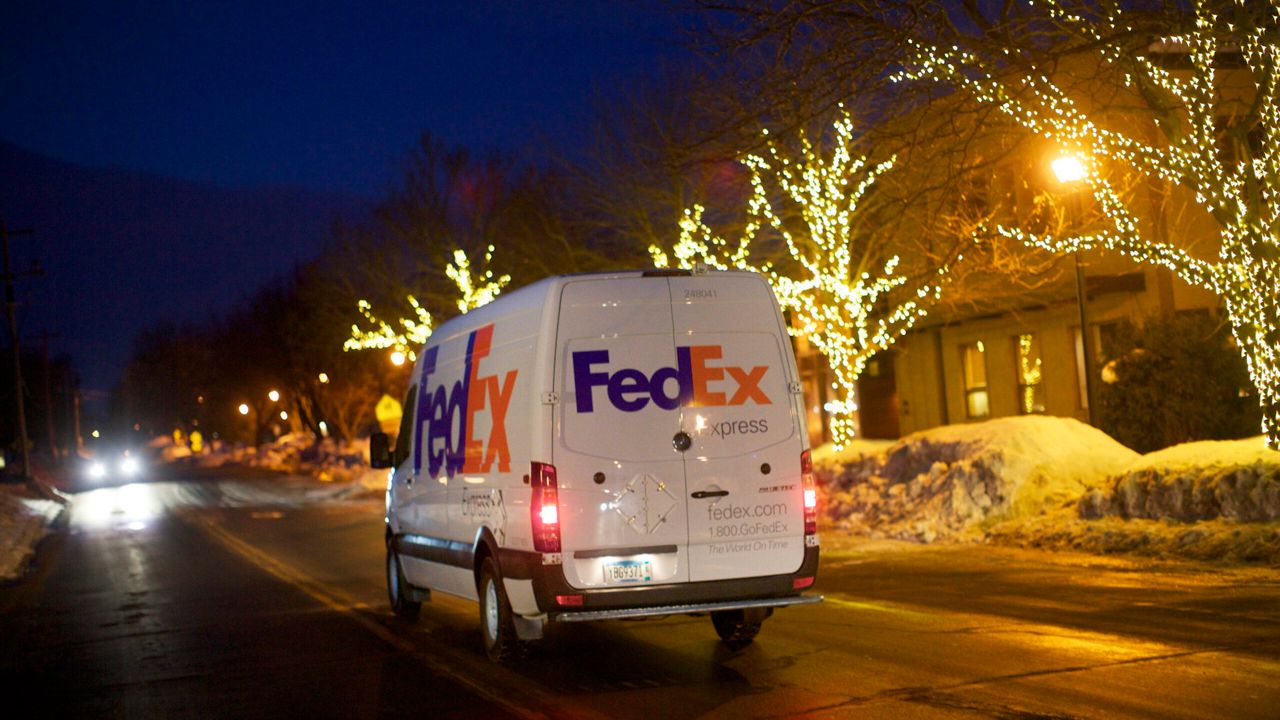LOUISVILLE, Ky. — On a normal day, Chris Cross makes 70 or so stops on his route as a FedEx driver. He hustles from house to house, delivering everything from medications to furniture that weighs more than he does, with the goal of getting home before dark to spend time with his friends, his wife and his instruments.
But during peak season, which started last week and continues through Christmas, all that changes.
“Peak season, for me, means strap on your boots and get ready because it’s about to get crazy,” Cross said on a rare day off.
Across Kentucky and throughout the country, workers in warehouses, fulfillment centers, and delivery trucks are putting in long days and handling countless packages during the busiest time of the year. It’s the time of year when holiday shopping sends e-commerce orders soaring and there will be no slowing down in 2021.
Online sales between Nov. 1 and Dec. 31 are expected to hit a record $207 billion this year, according to Adobe. That’s up 10% from 2020, when the pandemic turned online shopping into more than a matter of convenience.
Cross, who works six days a week during peak, is already seeing the bump. Last Sunday, he had 180 packages to deliver to 130 homes. “I didn't expect it to come on that quick after Black Friday, but that was the most I’ve ever had at FedEx,” he said.

This isn’t Cross’s first peak season. He spent several years driving for Amazon before starting at FedEx last summer. One of the lessons he’s learned is that social engagements and peak season don’t mix.
“I have no life during peak season. I don’t plan anything,” he said. “When I get home I am tired and I want to go to bed.”
Many major employers in Kentucky, including UPS and Amazon, ask more of their workers during peak season. They also bring more on. UPS announced plans this year to hire more than 100,000 seasonal workers to meet the demands of the holiday rush. Amazon is bringing on more than 150,000, including 2,500 in Kentucky. Neither company responded to questions about what a typical peak-season schedule looks like for its employees.
The influx of seasonal workers doesn’t relieve the pressure on those, like Caren Lamblin, who were already there. Lamblin works at a warehouse in Danville that ships several clothing brands. Her peak season schedule has her on the job seven days a week, from 7 a.m. to 5:30 p.m. Monday through Friday and 6 a.m. to 2:30 p.m. Saturday and Sunday. The long hours take a toll.
“The fact that we are wearing down is clear by the number of people getting sick with colds, sinus infections, and the COVID exposures and infections that have become part of our normal,” Lamblin said. “All of which are harder to bounce back from when we are physically worn down.”
Peak season does come with perks though. Lamblin gets a $4-per-hour bonus during peak season and her company provides free lunch three days a week. Asked if she thinks of peak season as a good thing because of the money, or grueling because of the hours, she said it’s “somewhere in between.”
“This money is going to help me get a new desperately needed car, but it's hard making my 11-year-old understand that,” she said.
Peak season also brings out the anxiety in customers, Cross said. As a delivery driver, he has gotten to know many of the people on his route. Some of them felt pity when he dropped packages at their house on Thanksgiving and offered food. Others are less kind. Last week, he was berated for bringing one package to a customer who expected three. He’s often suspected of stealing packages instead of delivering them, something he says is exceedingly rare. And one person became agitated with him recently because he didn’t have their UPS package.
“People forget we’re human,” he said. “We get tired. If we’re not going as fast as you want us to — sorry. We’re being worked hard right now.”
Cross said customers expect perfection, and are generally unforgiving when the people making their holidays possible make mistakes. He asked for more understanding this year, which he said is unlike any year before it.
“We have a lot to deal with," he said. "It's not only peak season, but on top of that you have the pandemic stuff. We’re not only delivering gifts, we’re delivering groceries, dog food, cat litter, all sorts of everyday stuff that people used to go to Walmart for. People should understand that we're not robots."



